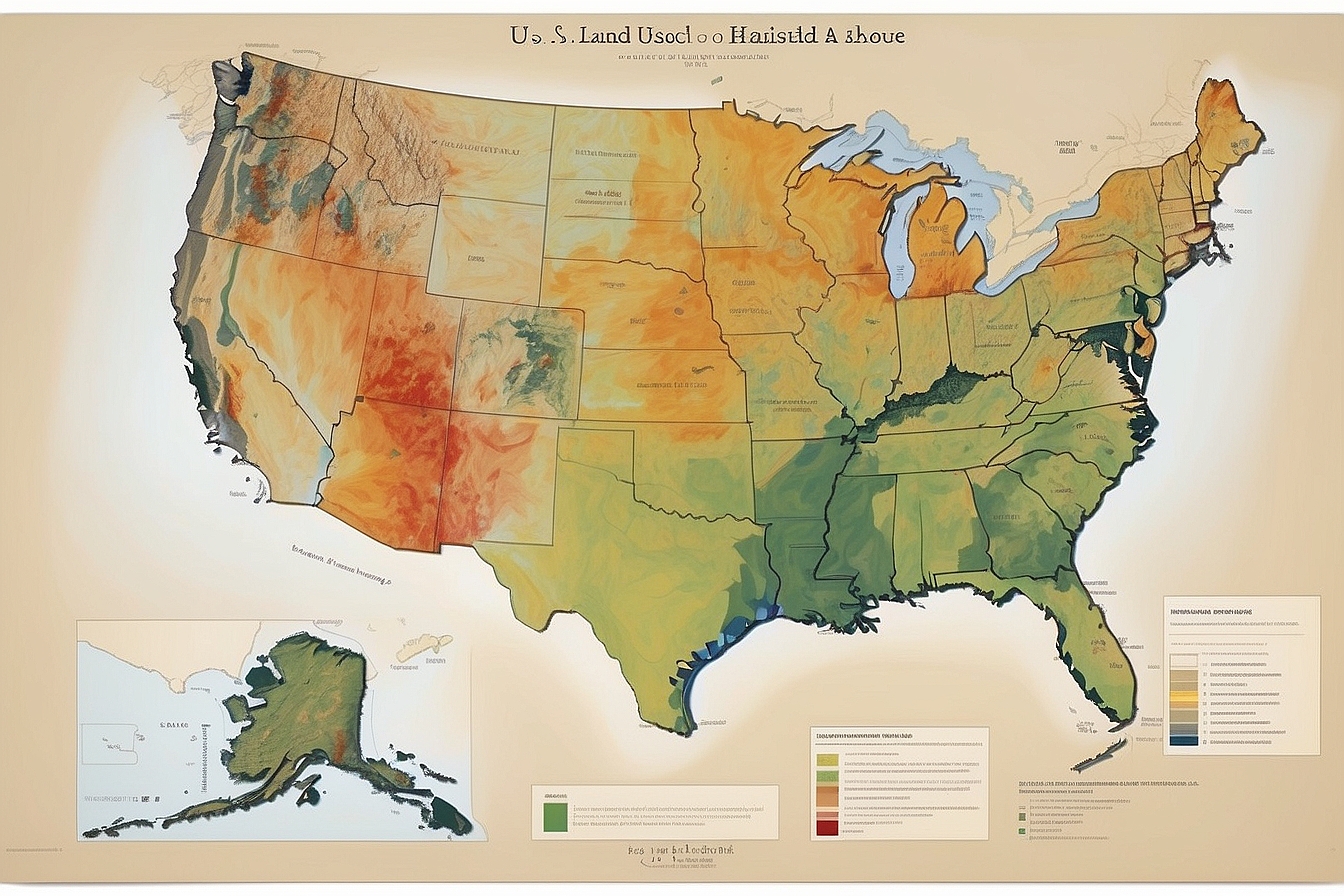Confronting the challenge of paying tribute to Mother Earth whilst also catering to the ever-growing demands of humanity often leaves us in a quandary. We understand this all too well, grappling with this precarious equilibrium ourselves.
The stark reality that a colossal 15 billion trees are felled each year brings the imperative need for change into sharp focus. Through our blog, we offer thoughtful insights on land stewardship, shedding light on how we can align our daily lives with the planet’s fundamental requirements.
Immerse yourself in our articles for some truly enlightening perspectives on living harmoniously within Earth’s embrace.
Key Takeaways
- Land ethics explore how to balance human activities with the planet’s sustainability, and there are several approaches including economics-based, utilitarian-based, libertarian-based, egalitarian-based, and ecologically-based ethics.
- Aldo Leopold’s land ethic stresses the importance of viewing humans as a part of nature and making decisions that ensure the long-term health of ecosystems alongside human societies.
- The various ethical frameworks offer different perspectives on property rights, individual freedom, social justice, economic benefits, and biodiversity conservation which influence our decision-making regarding land use.
- Critics argue that while Leopold’s holistic view is idealistic; it might be difficult to apply in practical settings due to potential conflicts between economic development and environmental preservation.
- Incorporating an ecologically – focused approach within these ethics can lead us toward more environmentally friendly choices and support a sustainable future for both humanity and the Earth.
Types of Land Ethics
There are various types of land ethics, including economics-based, utilitarian-based, libertarian-based, egalitarian-based, and ecologically-based. Aldo Leopold also proposed his own land ethic that emphasises the interconnectedness of all living things.
Economics-based land ethic
We recognise economics as a powerful tool in shaping land ethics. By valuing the services ecosystems provide, such as clean water and air, we can align conservation efforts with economic interests.
This approach incentivises people to protect natural resources because it’s not only ethical but also financially beneficial. It turns forests into carbon sinks worth preserving and wetlands into flood prevention systems that save money.
Our decisions often revolve around economic gain, which is why incorporating sustainability into this model encourages long-term flourishing for both humans and the environment. We invest in environmental stewardship because a healthy planet means healthier economies.
It’s about striking a balance where protecting biodiversity isn’t at odds with development—it becomes part of it.
Utilitarian-based land ethic
Transitioning from the economics-based land ethic, we now delve into the utilitarian-based land ethic. This approach prioritises actions that create the greatest good for the greatest number of people.
On a fundamental level, it aims to maximise overall well-being, seeking to strike a balance between human needs and environmental conservation. Utilitarian-based land ethic encourages decision-making that considers both short-term benefits and long-term consequences, ensuring responsible resource management and sustainable development.
It focuses on ethical behaviours that lead to long-term flourishing while balancing human interests with environmental protection. This framework involves making decisions about resource usage and conservation based on their impact on society as a whole—acknowledging individual rights but emphasising communal welfare.
Libertarian-based land ethic
Libertarian-based land ethic focuses on the rights of individuals to use and manage resources as they see fit, with minimal government interference. This perspective emphasises private property rights and individual freedom to make decisions about how land is used.
It values personal responsibility and free-market principles in shaping environmental policy.
This approach considers that individuals have the right to use their land without excessive regulations from external authorities, promoting autonomy and self-governance. The emphasis is placed on voluntary cooperation, mutual respect for property rights, and market mechanisms as the best means of managing natural resources sustainably.
Egalitarian-based land ethic
Transitioning from the focus on individual rights in the libertarian-based land ethic, an egalitarian-based land ethic emphasises equality and fairness. This approach advocates for just distribution of resources to ensure that all individuals have equal access to the benefits and burdens of the land.
It prioritises social justice and aims to address environmental injustices, advocating for policies that prioritise marginalised communities. Egalitarian-based land ethics strive for a balanced and inclusive environment where everyone has fair opportunities for enjoying and benefiting from natural resources.
This perspective aligns with the values of long-term flourishing, restoration, and ecological ethics by recognising that sustainable management must consider equitable distribution of resources.
Within an egalitarian-based land ethic framework, decision-making should aim to benefit not only privileged groups but also traditionally marginalised communities. The goal is to create a system where all members of society can equally participate in conservation efforts while ensuring that they share fairly in its benefits.
Ecologically-based land ethic
Ecologically-based land ethic acknowledges the interconnectedness of all living things and recognises that human well-being is dependent on the health of the entire ecosystem. It emphasises sustainability, biodiversity, and ecological balance in decision-making processes to ensure long-term flourishing for both humans and the environment.
This approach considers not only short-term gains but also takes into account the far-reaching consequences of actions on natural systems. Incorporating ecologically-based land ethic into our decision-making framework encourages us to consider the environmental impacts of our choices, paving the way for a more sustainable and harmonious coexistence with nature.
Applying ecologically-based principles in land ethics guides us towards more environmentally responsible decisions while promoting biodiversity conservation. By incorporating these concepts into our values and practices, we can contribute to a healthier planet for future generations.
Aldo Leopold’s land ethic
Aldo Leopold’s land ethic promotes the idea that humans are part of and not separate from the natural environment. It emphasises the importance of responsible decision-making that considers the long-term flourishing of both human communities and ecosystems.
This ethical framework provides a decision-making guide for individuals and societies, encouraging them to view environmental issues through a lens that prioritises sustainability and ecological health.
Leopold’s land ethic offers a valuable perspective by placing equal emphasis on human needs and environmental conservation. It challenges us to consider how our decisions impact not only current generations but also future ones, urging us to adopt more sustainable practices in our interactions with nature.
Attraction and Criticism of Leopold’s Land Ethic
Aldo Leopold’s land ethic has garnered substantial attraction due to its holistic approach, encompassing both human needs and environmental well-being. It provides a comprehensive decision-making framework that considers the long-term flourishing of both natural ecosystems and human societies.
This approach resonates with environmentally conscious individuals seeking sustainable solutions that balance ecological health with societal progress.
However, some critics question the practicality of Leopold’s land ethic, arguing that it may be challenging to implement in real-world decision-making processes. They express concerns about the potential conflicts between human interests and environmental preservation within this framework.
Despite these criticisms, many still find value in Leopold’s land ethic as an influential guide for shaping more responsible and thoughtful interactions between humans and nature.
Conclusion
In conclusion, balancing human and environmental needs requires carefully considering different land ethics. Understanding the diverse types of land ethics offers a decision-making framework for long-term flourishing.
Aldo Leopold’s land ethic, in particular, has attracted both praise and criticism within the realm of environmental ethics. Ultimately, embracing an ecologically-based land ethic can help guide our choices toward sustainable coexistence and mutual prosperity.
FAQs
1. What are land ethics?
Land ethics are principles that guide how we make decisions about using and caring for the land, so both humans and nature can thrive.
2. Why is it important to consider environmental ethics in our actions?
Considering environmental ethics helps us make choices that protect the environment for future generations’ long-term flourishing.
3. How does a decision-making framework fit into land ethics?
A decision-making framework provides structured guidance to ensure our actions support the balance between human needs and environmental health.
4. Can focusing on long-term flourishing change how we use the land?
Yes, by prioritising long-term flourishing, we make more sustainable choices that benefit both people and the planet over time.





